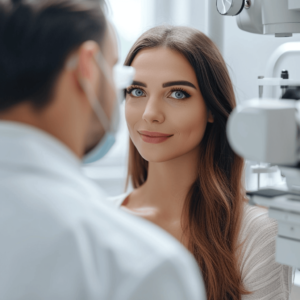
Ever planned the perfect beach day only to return home red as a lobster and feeling just a tad more fried? Well, you might have just experienced more than a simple sunburn, possibly sun poisoning. Don’t be alarmed, it sounds more dire than it actually is, but it’s definitely not to be taken lightly either. Let’s dive into understanding sun poisoning better, its symptoms, and how you can treat it if you accidentally overdo your sun worshiping.
What Exactly is Sun Poisoning?
First off, let’s clear the air – sun poisoning doesn’t mean you’ve been poisoned. It’s a term often used to describe a severe case of sunburn, one that involves not just your typical red skin but also symptoms like nausea, fever, and dehydration. It occurs when UV radiation inflames your skin beyond what’s considered a regular tan or burn.
Symptoms to Look Out For
Knowing the symptoms of sun poisoning is crucial because it can often be confused with a bad sunburn. Here are some signs to watch out for:
- Skin redness and blistering: Beyond what you’d experience with a regular sunburn.
- Swelling and pain: Especially if it’s severe.
- Fever and chills: Your body’s way of saying it’s not okay.
- Nausea, headaches, and dizziness: Dehydration and UV exposure can cause these symptoms.
- Dehydration: If you’re not keeping up with your fluid intake, you might get dehydrated.
Treatment and Relief
Caught the sun at its crankiest? Don’t worry; there are ways to alleviate sun poisoning symptoms:
- Hydrate, hydrate, hydrate: Drink plenty of water to help your body recover.
- Cool showers or baths: Helps lower your body’s temperature.
- Use soothing lotions: Aloe vera or lotions that contain it can soothe burnt skin.
- Avoid additional sun exposure: Stay indoors or in the shade to prevent further damage.
- Over-the-counter (OTC) pain relievers: Can help ease the pain and reduce inflammation.
Remember, if your symptoms are severe or don’t improve, it’s essential to seek medical attention. Sun poisoning can lead to dehydration, infection, and other complications if not treated properly.
Prevention is Better Than Cure
Finally, the best way to deal with sun poisoning is to prevent it from happening in the first place. Wear broad-spectrum sunscreen, cover up with hats and light clothing, and avoid being in the sun during peak hours. Making these small changes can make a big difference in your sun safety.
Embrace the sun wisely, and you’ll be able to enjoy your beach days without the unpleasant aftermath of sun poisoning. Just remember, moderation is key, and so is protection!


